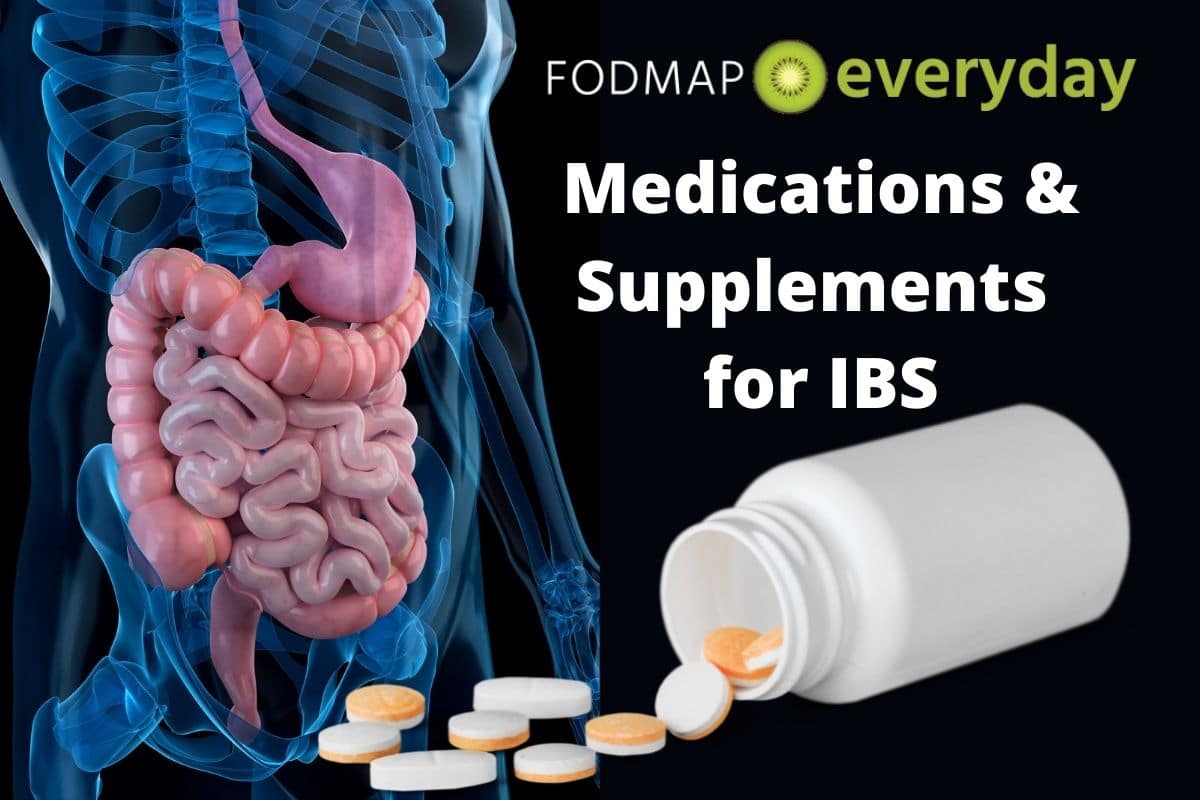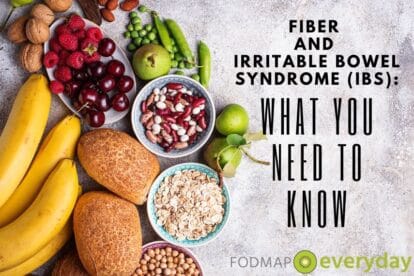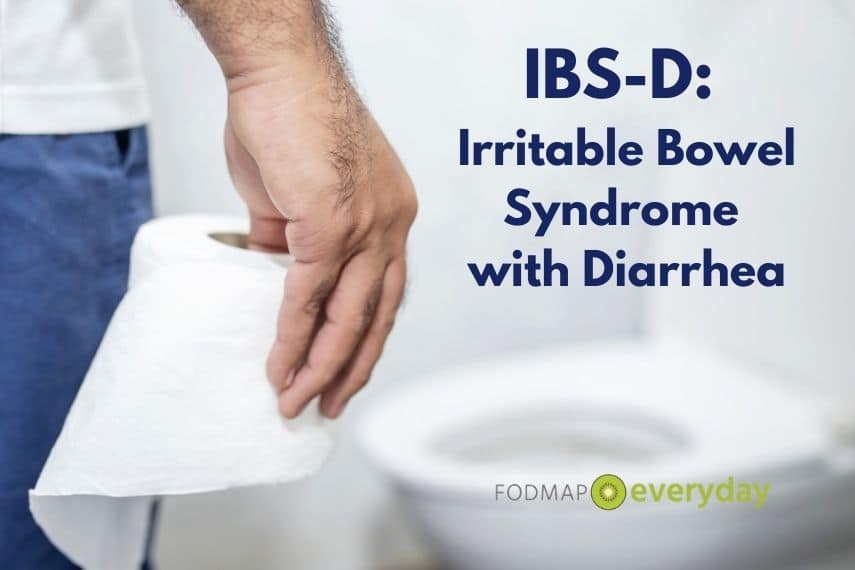Both prescription, over-the-counter medications and certain other supplements can play a part in managing IBS; this article takes a look at all of these.
Some are more well researched than others, so read with a discerning eye and of course do not add anything to your regime before discussing with your medical team.
Your own doctor, dietitian or pharmacist is the best person to advise on what medications or supplements are right for your particular situation, but here is an overview so that you will be educated about what is currently available, often recommended for people with IBS and also about some items that are just emerging as possible solutions.
Please note that this list is not exhaustive and will be updated yearly.

We are also not making any recommendations or providing medical advice. This is for information purposes only. Always work with your gastrointestinal medical team to determine what the most appropriate course of action is right for you.
Although Medications and Supplements can help manage IBS, it is important to note that all medications and supplements have side effects, and side effects can influence the gut both negatively or positively.
Medications Can Play A Role
Irritable bowel syndrome (IBS) is real. It hurts. It’s embarrassing. And it’s difficult to manage. IBS is what’s called a functional condition, meaning that the bowel by all evaluative means appears normal and healthy, but a person is experiencing symptoms of bloating, pain, wind and altered bowels for no apparent reason.
While there is no known cause nor cure for IBS, it can be well managed with a mix of strategies that address diet, stress and medications.
Let’s take a look at various medications, by type and some available options.
Fiber
Fibers are some of the most commonly used options and increasing fiber is often considered “first line treatment” for IBS. Fibers work in a number of ways by improving laxation, optimizing stool form and improving gut transit time. They can be helpful for both constipation and diarrhea. Fiber supplements are suitable for long term use and many have the added benefit of having a positive effect on gut microbiome, cholesterol and stabilizing blood glucose levels.
- Kfibre /happiGut (FODMAP Friendly certified) is made from sugarcane (with the sucrose removed). Kfibre is backed by university research showing that it helps with regularity, constipation and dietary indigestion. While it is fermented, the fermentation is uniform to minimize gas and bloating. The other cool thing about Kfibre is that it is a complex fiber meaning it is not heat treated and retains the fibers and nutrients found naturally in whole fruits and veggies, which contribute to supporting gut health and microbiome.
- Bulk forming non fermentable fibers have gel forming properties that absorb water and make stool bulkier and softer. As they are non-fermentable they do not contribute to gas or bloating. Options include:
- Citrucel/ generic name methylcellulose
- Normafibe /generic name stericulia
- Bulk forming fermentable fibers are generally isolated soluble fibers that act like a sponge soaking up water in the digestive tract. This makes loose stools better formed and small hard stools bulkier and softer. Soluble fibers are generally well tolerated in IBS. Options include:
- Sunfiber (Monash certified)/generic name PHGG (partially hydrolysed guar gum). Has been shown to be helpful for both constipation and diarrhea and appears well tolerated in IBS
- Metamucil or Fybogel/generic name psyllium is generally well tolerated, however, some people do report increased bloating with it.
- Fibercon/generic name polycarbophil
- Benefiber/generic name wheat dextrin has not formally been studied in IBS. It is not suitable for those with celiac disease or a wheat allergy.

You May Want To Read: Fiber and Irritable Bowel Syndrome (IBS): What You Need To Know
Laxatives
Osmotic Laxatives
These work by drawing water into the digestive tract and keeping it well lubricated so that stool can pass through more easily. Osmotic laxatives are generally very effective for constipation, particularly when combined with a fiber supplement and are considered suitable for long term use.
Options include:
- Milk of Magnesia/generic magnesium
- Miralax/generic name PEG (Polyethylene glycol)
- Movicol or Osmolax/generic name macrogol
- Lactulose
- Glycerin suppositories
Stimulant Laxatives
Stimulant laxatives work by stimulating the nerves in the gut and causing them to push matter through. These are very effective but are more likely to cause cramping and discomfort. Even though some of these are “plant based” or “natural”, there is some research that indicates that overuse of stimulant laxatives can be habit forming and result in dependence, so these are more often used for “situational” constipation rather than long term use.
If you are requiring these on a more regular basis, this might be a sign it is time to review with your doctor and discuss other options. Like all medications and supplements, your own doctor can advise on what options and how often it is safe for you to use them.
Options include:
- Dulcolax, Fleet, Bisacolax, BisacEvac, Laxit, Modane, Codulax, Alophen/generic name bisacodyl
- Senna
- Cascara sagrada
- Castor oil
Softeners or Emollient Laxatives
Stool softeners are kind of like moisturizer for your stool. They work by increasing the amount of moisture in your stool. These are not habit forming and are suitable for long term use, however, some people find them slightly less effective than other options. If these are working well for you, that’s great. If not, chat to your doctor about other options.
Options include:
- Colace, DulcoEase, Silace, Soflax/generic name docusate
- Coloxyl

You May Want To Read: The Scoop on Increasing Your Ability To Poop: Strategies for Alleviating Constipation
Treatments for Diarrhea
Loperamide
It works by blocking opioid receptors in the gut wall, reducing the contractions and slowing movement of matter through the gastrointestinal tract. This reduces the frequency of bowel movements and increases the time that the stool also stays in the intestine allowing more water to be absorbed by the large intestine, resulting in a “drier” stool. Loperamide is not recommended if you have blood in the stool, have a fever or antibiotic induced diarrhea. Although loperamide is safe to use, if you find you are needing it regularly, it’s a good idea to chat to your doctor to see if there is a better option.
- Immodium, Gastro-Stop, Diamode, Imotil, Kao-Paverin, Dioraleze/generic name loperamide
Viberzi/Generic name eluxadoline
Eluxadone is similar to loperamide and works by blocking opiod receptors in the gut wall to slow the gut. It has been shown to decrease abdominal pain, stool frequency and improve stool consistency. Unlike loperamide, eluxadoline is usually taken regularly rather than on an “as needed” basis.
Amitiza/Generic name lubiprostone
Lubiprostone works by increasing fluid secretion in the small intestine to help with constipation dominant IBS when diet and other treatments are not working. This medication may help with bloating, abdominal pain, improving stool form, reducing the need to strain and decreasing the feeling of incomplete evacuation.
Lotronex/Generic name alosetron
Aloestron is prescribed for diarrhea dominant IBS in women. It works by relaxing the colon, slowing the movement of waste resulting in less watery and less frequent stools. It may also reduce abdominal pain and urgency.
Lomotil
Lomotil reduces diarrhoea by slowing the contractions of the intestines. This slows the speed that matter moves through the intestines and results in a “drier” and less urgent stool.

You May Want To Read: IBS-D: Irritable Bowel Syndrome with Diarrhea
Anticholinergics/Antispasmodics
Anticholinergics work by blocking receptors on nerve cells and reducing bowel spasms. They relax the smooth muscle and relieve pain associated with contractions in the gut. In some cases, they are recommended for bouts of diarrhea. These medications are generally safe but can cause constipation, dry mouth and blurred vision.
- Buscopan/Levsin generic name hyoscine
- Levbid extended-release hyoscine
- Bentyl/generic name dicyclomine
- Mebeverine
- Donnatab
Simethicone
Simethicone is used to relieve painful pressure of excess gas and bloating in the stomach and intestines. It works by breaking up gas bubbles in the gut and making them easier to pass. There are multiple brand names for simethicone, some of the most common ones are:
- DeGas
- Alka-Seltzer
- Biscarsim
- Gas-X
- Gasbusters
- Dulcogas
- Infacol
Peppermint Oil
Peppermint oil helps to relax smooth muscle and breaks up gas, making it easier to release. Research has shown it to reduce abdominal pain and improve global symptom’s scores including quality of life, satisfaction with bowel habits, distention and pain. Peppermint oil can be purchased in enteric coated capsules and most pharmacies and drug stores e.g. Mintec and IBGard. This coating ensures that it survives the stomach acid and the capsule makes it intake to the bowel where you want the peppermint oil to do its thing. Because peppermint relaxes smooth muscle, it can worsen reflux.
Iberogast
Iberogast is one of the few herbal supplements that has some research behind it for helping with functional dyspepsia and IBS. Research has shown it to reduce total symptoms scores, improve abdominal pain and may improve gastric emptying. The taste can be “polarizing” but if you’re looking for a safe and natural approach, Iberogast may be for you. Iberogast appears to work best when taken regularly three times a day with meals. Iberogast has a distinctive taste and may not be to everyone’s preference.
Pepto-Bismol/Generic name bismuth subsalicylate
Pepto-Bismol works by protecting the stomach and digestive tract from stomach acid. It also has mild antacid effects. It is used to treat occasional stomach upset, heart burn, nausea and diarrhea. It may also be used to treat or prevent travellers’ diarrhea. In some cases, a doctor may prescribe it in combination with other medications to treat Helicobacter Pylori. Pepto Bismol is a salicylate. Salicylates are a plant chemical which some people are sensitive to and if so, may worsen IBS symptoms.
Carafate (Sucraflate)
Is used to treat and prevent stomach ulcers by forming a protective coating over the ulcer to prevent further injury and allow healing. If you are taking other medications (including antacids), you may need to take them at a different time of the day to Carafate, so make sure to discuss this with your pharmacist.
Antibiotics
Antibiotics may be used to address a parasite, bacterial overgrowth (SIBO), helicobacter pylori (in combination with PPIs) or travellers’ diarrhea. Rifaxamin is the most common antibiotic used in IBS. It’s a nonabsorbable antibiotic, so it targets the gastrointestinal tract (particularly the small intestine). While not well understood, it’s believed that Rifaxamin alters small bowel microbiota, resulting in positive changes in IBS symptoms. Unfortunately, the benefits appear to be transient and repeat treatment is often necessary. The most common antibiotics prescribed for IBS include:
- Rifaxamin
- Flagyl/generic name metronidazole
- Ciprofloxin
- Neomyacin
- Biaxin/Generic name clarithromycin
Proton Pump Inhibitors (PPIs)
PPIs are used to treat reflux. They work by reducing the production of stomach acid. They appear to work best when taken over time rather than just occasionally. While PPIs are safe for short term use, they carry side effects when used long term including increased risk of B12 deficiency, osteoporosis and Clostridium difficile (c.diff) infection. PPIs are often used in conjunction with antibiotics to treat helicobacter pylori.
- Nexium/generic name esomeprazole
- Protonix/generic name pantoprazole
- Prevacid/generic name lansoprazole
- Prilosec/generic name omeprazole
Antacids
Antacids can be used for immediate treatment of occasional reflux, heart burn or indigestion. If you find you are using this twice or more per week on a regular basis, it is worth discussing worth your doctor.
- Tums/generic name active ingredient calcium carbonate
- Quick-Eze/blend of calcium carbonate, magnesium carbonate, magnesium trisilicate
- Pepcid/generic name famotidine
- Zantac/generic name ranitidine – In April 2020 the FDA issued a recall of all forms of this heartburn drug because they may contain low levels of N-nitrosodimethylamine (NDMA), a substance that could cause cancer. If you take this drug, have been prescribed this drug, or have some in the medicine cabinet, please review with your doctor.
- Zantac 360/generic name famotidine – Please note that the “Zantac” brand has re-launched as “Zantac 360”. Its new formulation contains famotidine, which does not have the same issues as ranitidine. If you are taking a “Zantac” product, please make sure it is the new formulation that contains famotidine.
Prokinetics
Prokinetics help strengthen the sphincter between the esophagus and the and increase the speed of stomach emptying. They are commonly used for reflux, gastroparesis and nausea.
- Metoclopramide
- Domperidone
- Prudac/generic name prucalopride
- Bethanechol
- Prepulsid, Propulsid/generic name cisapride
Cyclase-C Agonists
Linzess & Trulance
Linzess, generic name linaclotide, and Trulance, generic name plencanatide, belong to a class of drug called Guanylate cyclase-C agonists. These work by increasing the fluid secretion in the intestines, particularly the small intestine, which softens stools and stimulates a bowel movement. They are used to treat constipation irritable bowel syndrome. Linzess can cause diarrhea but taking it with food may reduce this.
Neuromodulators
Antidepressants and Anti-anxiety Medications
Neuromodulators are used to treat depression and in small doses appear to be very effective for reducing the sensitivity of gut nerves as well as the relaxing effects they have on the head brain. These types of medications usually take a few weeks to have peek effect and usually require a weaning off period when you are ready to stop them. While they may not be the right fit for everyone, in some people they can be very effective.
- Endep/generic name amitriptyline
- Tofranil/generic name imipramine
- Norpramin/generic name desipramine
- Pamelor/generic name nortriptyline
- Celexa/generic name citalopram
- Prozac/generic name fluoxetine
- Paxil/generic name paroxetine
- Zoloft/generic name sertraline
Pain Medications
Medications for chronic pain have been shown in a few small trials to ease severe pain and bloating associated with IBS. Given the limited evidence for these, it is suggested beneficial to trial better studied medication, lifestyle and dietary measures first.
- Lyrica/generic name pregabalin
- Neurontin/generic name gabapentin
Bile Acid Binders
Bile acids are usually secreted into the GI tract to help with breaking down fats and then reabsorbed at the end of the small intestine. If the bile is not reabsorbed properly, it then travels into the colon and can result is loose and watery stools. If this excess bile acid is the cause of the diarrhea, bile acid binders can be very effective for achieving more formed and less frequent stools. Your doctor can perform a blood or stool test or may assess your symptoms clinically to determine if this is relevant to you. Bile acid binders may also be used to treat high cholesterol.
- Questran/generic name cholestyramine
- Cholestid/generic name colestipol
- Cholestagel/generic name colesevelam
Glutamine
There has been some preliminary research on the use of glutamine for patients with post infectious IBS-D where its effect showed promise.
The authors of a 2019 trial concluded that in patients with IBS-D with intestinal hyperpermeability, following an enteric infection, that oral dietary glutamine supplements dramatically and safely reduced all major IBS-related endpoints.
Large randomised clinical trials (RCTs) should now be done to validate these findings, assess quality of life benefits and explore pharmacological mechanisms.
The study used a dose of 5g of glutamine, 3 times per day. Glutamine supplements are expensive and the suggested daily dosage on the container is often less than that. A smaller dose will most likely not be sufficient to provide benefits. It can also be noted that once mixed with a liquid, glutamine changes chemical form. It is therefore better to drink it immediately when mixed with a liquid. It also best to avoid taking it with other high protein foods, it would be preferable to take it between meals.
Glutamine is widely available in high protein foods like meat, chicken, fish, eggs, tofu, etc. It is absorbed in the small intestine and once absorbed there is no guarantee it will end up in the gut. The body will deliver it and use it where it is needed in the body at the time of consumption.
Aloe Vera
Aloe Vera is a succulent (plant) with two components: a gel and a latex. It has known stimulant laxative properties and may provide anti-inflammatory and analgesic properties. We have addressed aloe vera in previous articles, but subsequent research has been conducted.
It has been reported that diarrhea, melanosis or acute hepatitis can occur. NICE guidelines warn against the use of aloe vera in IBS due to it possibly causing severe cramps and diarrhea. It can also affect the absorption of anti-coagulants and oral diabetic medications.
In 2018 a study looked at the short-term effectiveness of aloe vera on IBS. A meta-analysis of 3 randomized placebo controlled trials including 151 patients with IBS showed a significant improvement in IBS symptom score for patients with aloe vera compared to those with placebo.
No adverse events related with Aloe vera were found in included studies. However, the long-term safety or rare adverse events of aloe vera could not be demonstrated in this meta-analysis of studies conducted within 5 months.
In 2002, the FDA removed aloe vera latex products from the US market due to safety concerns, so only the gel is now available. To date, there is insufficient evidence for the carcinogenicity and long-term safety of aloe vera in humans, especially patients with IBS who require long-term or repeated treatments due to the chronic, relapsing nature of the disease. Thus, a long-term prospective RCT is needed to determine the long-term safety as well as efficacy of aloe vera in patients with IBS.
Melatonin
Melatonin is a neurohormone released by the pineal gland in a circadian pattern related to light exposure. It is structurally similar to serotonin and can help with sleep. The concentration of melatonin in the gastrointestinal tissues surpasses that in the blood by 10 to 100, which suggests that melatonin may play an important role in the digestive system.
Melatonin might be a candidate for IBS treatment based on the following considerations:
- Melatonin has analgesic effects which may help to alleviate abdominal pain and influence the sensation of abdominal distention in IBS patients
- Melatonin has regulatory effects on gastrointestinal tract motility and sensation which may improve the bowel habits and alleviate abdominal pain or distention in IBS patients
- Melatonin could have a sleep promoting effect which may useful to treat the sleep disturbance of IBS patients
- Melatonin has mood regulation and anti-stress effects which could help alleviate the abnormal psychological parameters observed in IBS patients.
Thus, melatonin might serve the several aspects of IBS treatment strategy because it targets not only the psychological component (i.e. stress, anxiety, depression and sleep disorder) but also the peripheral elements of abnormal bowel sensation and motility.
A few randomized clinical trials have been conducted to evaluate the effects of a melatonin supplement for IBS. Those studies included a small amount of patients (18 to 60 adults with IBS) who took melatonin (3 mg to 5 mg) before bed for a short amount of time (2 weeks to 6 months). Overall, the studies show that melatonin can help reduce pain in patients with IBS, but its effects on other IBS symptoms are not clear and more studies are needed.
Melatonin is a relatively safe and low cost supplement that possesses potential in treating IBS due to possible analgesic, promotility, sleep promoting and anti-stress effects. It may improve IBS symptoms, especially pain.
Cannabis
Cannabis is derived from the Cannabis sativa plant. A this time, there are over 100 chemicals identified as “cannabanoids”, the main ones being THC, CBD and CBG. Several cannabinoid receptors which include the cannabinoid receptor 1 (CB1), CB2, and possibly GPR55, have been identified throughout the GI tract.
Cannabinoids are well-established modulators of gut motility and visceral pain and have demonstrated anti- inflammatory properties.
Despite numerous studies in cell lines and animals and evidence of visceral sensitivity inhibition in animal models, few human studies have evaluated the therapeutic effects of cannabinoids, and data in IBS patients is scarce and not supportive.
A 2017 randomized, placebo controlled trial studying the effect of THC in IBS demonstrated mixed results, with an improvement in the total number of weekly stools and Bristol scale after 4 weeks of therapy compared to the placebo group, but no difference in quality of life.
A recent study of the oral cannabinoid receptor type 2 (CB2) agonist, olorinab, failed to show statistically significant improvement in abdominal pain in patients with IBS. Additional placebo-controlled trials are needed to clarify the role of cannabis in IBS treatment. It can be noted that marijuana can cause adverse effects including central nervous system symptoms and cannabinoid hyperemesis syndrome.
Cannabinoids can potentially modulate gut motility and visceral pain and reduce inflammation.
Animal studies and clinical trials suggest that there may be a therapeutic role for cannabinoid therapy in the treatment of IBS, but more placebo-controlled trials are needed to clarify the role of cannabis in IBS treatment.
Marijuana may possibly cause adverse effects in patients with GI issues.
The Takeaway
While this list of medications and supplements is extensive, it is not complete. There are many options for treating and managing your IBS depending on your sensitivities and the underlying causes.
We are not making a recommendation for any of the products on this list – nor providing medical advice. The best person to discuss your medication and supplement needs with is your doctor, dietitian or pharmacist who can provide individualized advice for your situation.
References:
- Zhou et al (2019) Randomised placebo-controlled trial of dietary glutamine supplements for postinfectious irritable bowel syndrome. Gut;68(6):996-1002.
- Hong et al. (2018) Aloe vera Is Effective and Safe in Short-term Treatment of Irritable Bowel Syndrome: A Systematic Review and Meta-analysis. J Neurogastroenterol Motil; 24(4): 528–535.
- Sia, Wond and Ho (2014) Melatonin for the treatment of irritable bowel syndrome. World J Gastroenterol; 20(10): 2492–2498.
- Xue, Qi and Wan (2017). Randomized controlled study of efficacy and safety of drotaverine hydrochloride in patients with irritable bowel syndrome. Medicine;96(51):0000000000009235.
- Quezada and Cross (2019) Cannabis and Turmeric as Complementary Treatments for IBD and Other Digestive Diseases. Current Gastroenterology Reports;21: 2.
- Gotfried, Naftali and Schey (2020) Role of Cannabis and Its Derivatives in Gastrointestinal and Hepatic Disease. Gastroenteroloy; 159:62–80
- Shapiro, Deutsch and Chey (2020) An evidence-based narrative review of oral supplements for the treatment of patients with irritable bowel syndrome. Neuro Gastro Latam Rev;4(1):33-46.








Joanna,
I had a way-past-due appointment with my GI doc yesterday. She, again, suggested I take a tricyclic — desipramine, Elavil, etc. — to help with my IBS. However, my counselor would like for me to take a low-dose of Prozac. Both of these meds are mentioned in your article as possibilities, but, how do I know which one to take? My GI doc believes the Prozac will not work at all. So…I feel stuck. Thoughts?
Thank you,
Beth
Hi Beth, this is from Joanna: “I would suggest discussing her concerns and her counsellors recommendations with her GI doctor. But it sounds like she may have done that. My initial thoughts are that counsellors are not qualified to prescribe or recommend medication anyway, while the GI doctor is. So I would generally follow the GI doctors advice on that. If she is uncomfortable, perhaps see another GI doctor for a second opinion?
In terms of IBS, there is research that low dose TCAs help with IBS directly because they target the gut nerves. There is no evidence that Prozac helps with IBS directly. Prozac does make people feel better in general, and this impacts IBS.”
Thank you, Dede, for forwarding Joanna’s response to me!
My counselor did defer to my GI doc’s opinion regarding antidepressants for IBS. It’s just that my counselor had suggested the Prozac for mental illness issues before I saw my GI doc. And the GI doc’s recommendation for the IBS (she did not yet know about the Prozac for mental illness) made me wonder which would be the best option. It sounds like all around that everyone feels the TCAs are the best route for the IBS. I had a past bad reaction to a different antidepressants, and I’m hesitant to take another one. 🙂
I have a consultation with Tamara on Wednesday. I don’t know if we’ll get around to the antidepressant issue since it will be my first appointment with her. If we do, though, I am interested in hearing what she has to say about using antidepressants at this point, in case there is something else that might be going on that needs attention that an antidepressant cannot fix. I am so looking forward to my time with Tamara!
Thank you, again, for the response!
Tamara is amazing! Good luck and good for you for not giving up. You are working on yourself and that is Huge!
Tamara is amazing! She was easy to talk with and listened SO well! I am grateful to have found her here and to be able to connect with her for medical help even though I live in a different state. This website is a wonderful resource on so many levels!
Thank you for letting everyone know your experience. We are grateful for all of our community members.
Hi! My name is Marianne, and i am 53 years old. I live in Brazil. I suffer from IBS for at keast 10 years- some years more crises some years less.
Last December I was travelling in Germany and Switzerland and I had to take medicine for diarrhea and didn’t knowwhat to buy….
I used the iberogast, that you mentioned, but it didn’t work for me. Everytime I had a crises like that it takes 1 to 3 months to stop.
I practice exercises everyday, and i do the fod map diet when I need. It is so difficult to find a doctor that knows about this. Every time I had to do all the exams to see all the same … why a such normal problem, with such a lot of people have this, and they don’t discover something that works!
Do uou have a doctor’s name here in Brasil to inform me?
Kind regards
Hi Marianne, We are so sorry to hear of your frustrations, but I hope you know you’re not alone. I do not know of any doctors or dietitians in Brazil in particular, but these days it is very easy to work with a registered dietitian anywhere in the world remotely. I highly recommend that you take a look at our directory and reach out to somebody that could work with you in that manner. It could be Skype, Zoom or phone. Many people have found this to be quite effective.
Rereading this article, caused me to want to share what has been working for me. My IBS -C flared intensely 2 years ago. With constant bloating making me look pregnant in my mid 50s.This website has been so helpful to me! After reading Tamara’s book, I felt that my symptoms could suggest SIBO—methane predominant. Unfortunately, I haven’t found a gastroenterologist who seems to understand the problem or to be able to successfully treat me. While eating Low FODMAP was definitely helpful, I could not seem to kick my problem. After bouncing around the internet, I once found a mention of a supplement called Atrantil. It has really made a difference, I’ve been able to reintroduce a few foods and find that the constant bloating is greatly improved.I still need nightly Miralax and have added. K-fibre to my diet as well. Kfibre is definitely the most effective fibre supplement that I’ve tried. I thought that you may want to know of Atrantil and consider adding it to this very helpful article!
Thank you for writing Susan. Sounds like you are doing everything right! We love Tamara and you are doing great research and are listening to your body. It is so liberating when we start making progress and learn what your system needs.